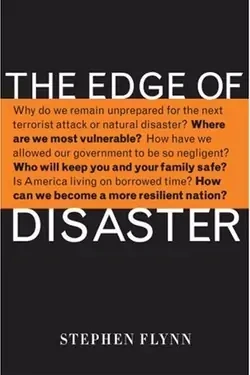
The Edge of Disaster
Rebuilding a Resilient Nation

In this gripping book, leading security expert Stephen Flynn issues a call to action, demanding that we wake up and prepare immediately for a safer future.
- Book
- Foreign policy analyses written by CFR fellows and published by the trade presses, academic presses, or the Council on Foreign Relations Press.
We have learned little from the cataclysms of September 11 and Hurricane Katrina. When it comes to catastrophe, America is living on borrowed time—and squandering it.
The truth is, acts of terror cannot always be prevented, and nature continues to show its fury in frighteningly unpredictable ways. Resiliency, argues Flynn, must now become our national motto. With chilling frankness and clarity, Flynn paints an all-too-real scenario of the threats we face within our own borders. A terrorist attack on a tanker carrying liquefied natural gas into Boston Harbor could kill thousands and leave millions more of New Englanders without power or heat. The destruction of a ship with a cargo of oil in Long Beach, California, could bring the West Coast economy to its knees and endanger the surrounding population. But even these alarmingly plausible terrorist scenarios pale in comparison to the potential destruction wrought by a major earthquake or hurricane.
More on:
Our growing exposure to man-made and natural perils is largely rooted in our own negligence, as we take for granted the infrastructure handed down to us by earlier generations. Once the envy of the world, this infrastructure is now crumbling. After decades of neglect, our public health system leaves us at the mercy of microbes that could kill millions in the next flu pandemic. Flash flooding could wipe out a fifty-year-old dam north of Phoenix, placing thousands of homes and lives at risk. The next San Francisco earthquake could destroy century-old levees, contaminating the freshwater supply that most of California relies on for survival.
It doesn't have to be this way. The Edge of Disaster tells us what we can do about it, as individuals and as a society. We can—and, Flynn argues, we must—construct a more resilient nation. With the wounds of recent national tragedies still unhealed, the time to act is now. By tackling head-on, eyes open the perils that lie before us, we can remain true to our most important and endearing national trait: our sense of optimism about the future and our conviction that we can change it for the better for ourselves—and our children.
A Council on Foreign Relations Book
This book is also available in an audio version.
More on:
 Online Store
Online Store